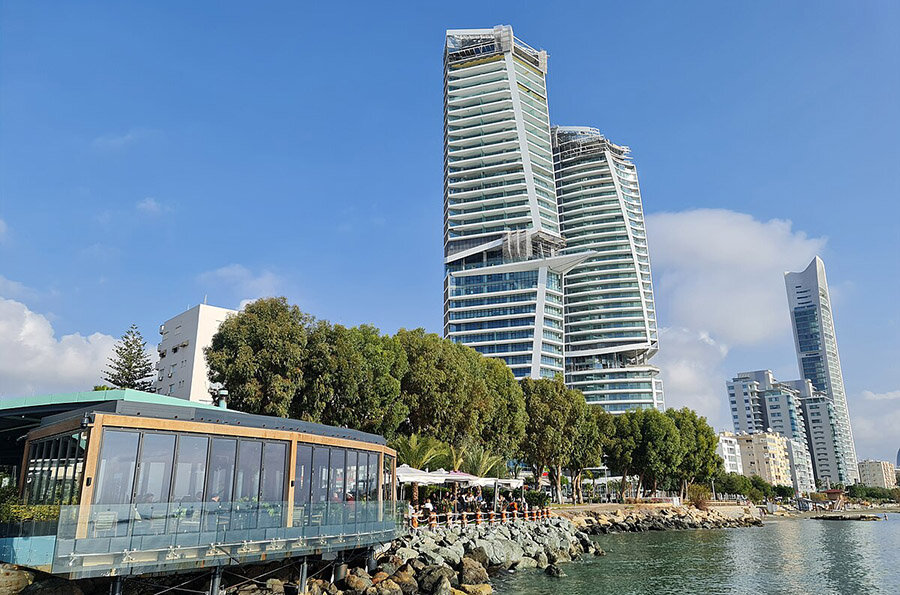Cyprus Real Estate 2025: Reforms in Construction and Rental Segments

What’s happening on the island? The government of Cyprus is set to reform its real estate market in 2025, aiming to reduce the gap between supply and demand and curb rising prices. However, the new measures have sparked debate, as social goals could negatively impact developers, landlords, and foreign investors, potentially undermining the country's investment appeal.
Government Strategy
Cyprus Mail reports that Interior Minister Constantinos Ioannou unveiled a package of reforms at the Property Development & Construction conference. These reforms are intended to boost housing supply and stabilize prices. They include:
- Reducing the minimum apartment size by 15% in residential areas, allowing for more units per plot;
- Removing mandatory quotas on apartment types in tourist zones;
- Introducing the Build-to-Rent model in commercial areas to accommodate workers and reduce pressure on residential stock;
- Granting additional building coefficients to developers who commit to selling part of the housing stock at affordable rates.
These measures aim to quickly scale up affordable housing while involving the private sector in addressing social needs. According to the ministry, agreements have already been signed for over 1,900 housing units, around 300 of which will be offered at reduced prices. The Affordable Housing Fund expects contributions totaling approximately €8.7 million.
The government is also simplifying the bureaucratic process: building permits for private homes are now issued in 20 working days and in 40 for large-scale developments.
Housing Price Index
According to the Central Bank of Cyprus, the pace of property price growth is slowing. In Q3 2024, apartment prices increased by 8.8% year-on-year (compared to 12% in Q2), while house prices rose by 6.5% (vs. 8%).
The highest increases were recorded in Famagusta (+19.2%), Larnaca (+15.1%), and Paphos (+14.4%). Nicosia and Limassol showed more moderate growth due to stabilized supply from new development. Analysts forecast a continued slowdown.
"We’re seeing a shift from an overheated market to a more balanced state. This is due to both policy measures and a decline in foreign investor demand," said economist Charalambos Stylianou.
The number of approved development projects rose by 4% in H1 2024 compared to the same period in 2023. A 2% decrease in construction material costs also positively impacted final housing prices.
Focus on Local Buyers
With the housing shortage escalating, there are increasing calls to limit incentives for foreign investors. The left-wing AKEL party has proposed abolishing the reduced 5% VAT rate for foreign nationals who breach the program's conditions—such as renting out their properties despite restrictions. MP Giorgos Loukaides emphasized that such benefits should be reserved for middle- and lower-income families, not wealthy foreigners.
This proposal could shift the investment climate, potentially reducing foreign capital inflows or forcing strategic revisions for those targeting tax incentives. Still, it signals a more socially focused direction for the housing market.
The government is also expanding land grants for low-income families and promoting the "renovate-to-rent" program, which offers up to €35,000 for restoring vacant homes and renting them out at affordable rates. As of March 2025, over 400 users have registered on the Cyprus Land Development Corporation platform, and about 50 applications have been submitted, showing significant public interest.
Short-Term Rentals Under Scrutiny
Short-term rentals remain one of the key drivers of the housing shortage. Between 2023 and 2025, the number of registered short-term rental properties nearly doubled—from 4,765 to 8,248. Experts estimate the real figure exceeds 80,000 units. The Real Estate Agents Council has called for a ban on daily rentals.
The initiative has sparked mixed reactions. Some investors and property owners fear income loss, especially in tourist hubs. Landlord associations argue that bans could push the market underground. However, hoteliers support the proposal, seeing it as a step toward fairer competition, particularly in high-demand areas.
"Many units do not meet safety standards and distort the rental market. We need regulation similar to what’s already being implemented in other EU countries," said Deputy Tourism Minister Costas Koumis.
Currently, only 30% of short-term rentals are officially registered, posing risks to tax revenue, safety, and market fairness. Authorities are considering region-specific regulations modeled on Barcelona and Athens.
Conclusion
Cyprus’ property market in 2025 is undergoing structural transformation. The new policy mix seeks to expand supply, protect local buyers, and cool speculative trends. While the reforms may temporarily dampen foreign investor activity—especially amid VAT and rental restrictions—they mark a shift toward long-term housing stability. Analysts note that Russian investor interest has already declined due to tighter rules. Similar effects may soon be seen among other foreign groups unless new strategies are adopted.








